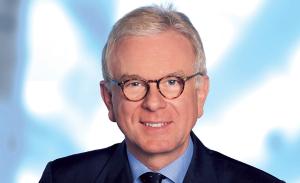At first glance, the Arab spring and the initiative of the Palestinians to bring their demand for sovereignty before the United Nations have little to do with each other. The people in Tunisia, Egypt and other Arab countries are striving for a life in „freedom from fear and want“ (as it reads in the Preamble of the Universal Declaration of Human Rights from 1948), whereas the Palestinians finally want to reap the rewards of their years of work for the building of state structures. Nonetheless, there is an interaction: The Arab spring encourages the Palestinians in their conviction that stagnation is no inevitable fate, that political change can be achieved through peaceful protest. On the other hand, currently an escalation is threatening because of the attacks on Israel out of the Gaza strip and the Israeli reaction to them. The risk is not only to the detriment of Israel and her neighbours but also of Europe. Moreover, there is the – first of all motivated by domestic policy – protest movement in Israel. The currently popular comparisons between the Tahrir square in Cairo and the Rothschild-Boulevard in Tel Aviv are inappropriate. Nevertheless, there actually exists a hidden connection between the demonstrations in Israel and the unsolved regional conflicts.
So, the support of Jewish settlements on Palestinian territory and their protection by the military devour sums which are lacking in the Israeli national budget for urgent tasks in social, family and educational policy. More and more Israelis wonder why the dividend of a solution of the Israeli-Palestinian conflict remains withheld from them – a solution that already quite often had appeared to be within reach since the Oslo Accords in 1993. In this open situation North Africa and the Near East need strong partners who are assisting on the path towards a liberal democracy and towards a stable internal and external peace.
Now, the European Union is faced with a special challenge. The constitutive exertion of influence on the change in the southern neighbour region is a challenge of global political importance, the first really big task for the EU since the Lisbon Treaty came into force. The means for joint and effective European action exist. In order being able to use them, a consensus in the matter is required. Nevertheless, we also clearly have to leave the authorship of the changes and the responsibility for them with the people in the region. The example Libya clearly shows that at first and above all it is a victory of the Libyan people that gets rid of the dictator with the support of UN and NATO.
Already today the European Union is encouragingly and supportive on the side of all those in the region who stand up for freedom and democracy, for free elections, freedom of opinion and freedom of the press and the respect for human rights. Now the time of the scarcely spectacular hard labour has come, of the so important social, economical and political reorganisation. For instance, in a first step the EU will support Tunisia and Egypt in the preparation of the forthcoming elections.
These efforts will have to be completed by a European peace initiative for the solution of the Israeli-Palestinian conflict. Since the Venice Declaration of the EC Foreign Ministers from 1980 the European Union stands up for a two-state solution. The initially highly controversial demand is international consensus today – also with most of the Israelis. Since Oslo the EU has supported the building of state structures in the territories of the Palestinians with high billion sums. Also therefore it has every reason for it to become a driving force now. The European initiative should be aiming at a draft resolution that can be given support in the United Nations – the World Security Council as well as the General Assembly – also by the United States.
Actually, it should be possible to quickly reach agreement within the Near East Quartet about the parameters of such an initiative: It is about a solution within the „borders of 1967“, in connection with an exchange of territories there, where Jewish settlements are massing on Palestinian territory today. It is about security guarantees for Israel in view of borders which are hard to defend. And – last but not least – it is about the mutual recognition of Israel as the state of the Jewish people and of Palestine as the state of the Palestinian people. I agree with US President Obama who stated on May 19, 2011: „Palestinians should know the territorial outlines of their state; Israelis should know that their basic security concerns will be met. I’m aware that these steps alone will not resolve the conflict, because two wrenching and emotional issues will remain: the future of Jerusalem, and the fate of the Palestinian refugees. But moving forward now on the basis of territory and security provides a foundation to resolve those two issues in a way that is just and fair, and that respects the rights and aspirations of both Israelis and Palestinians.“
Israelis and Palestinians would stand in the centre of this necessary initiative – but it is also true that a lasting solution of the conflict is only possible when preferably all neighbours take part in it. The Arab Peace Initiative (API) of 2002 shows that there are enough responsible-minded governments in the region which could be won for a European initiative.
Time is pressing. Only when Europe proves unity in this issue of existential importance instead of being a sight of internal dissension, it will be able to consolidate and strengthen her influence as a foreign-policy protagonist in the 21st century.
Translated by Dr. Monika Zemke, Berlin



